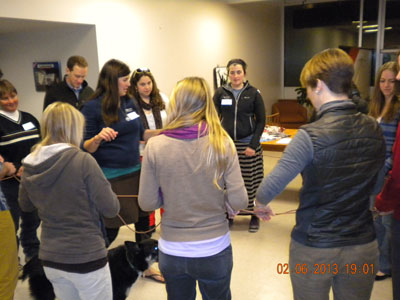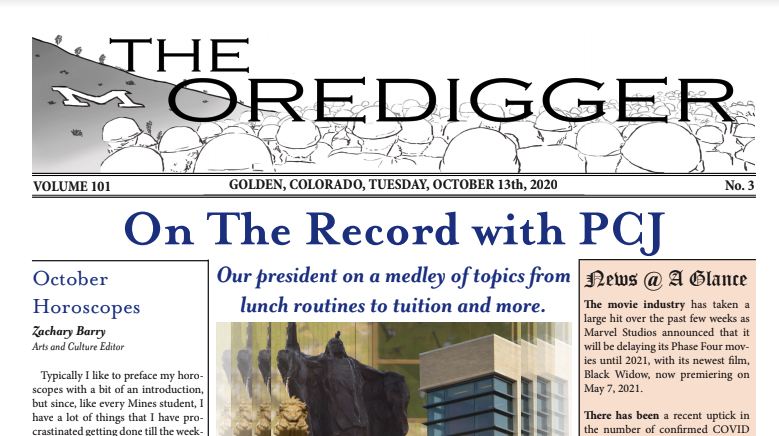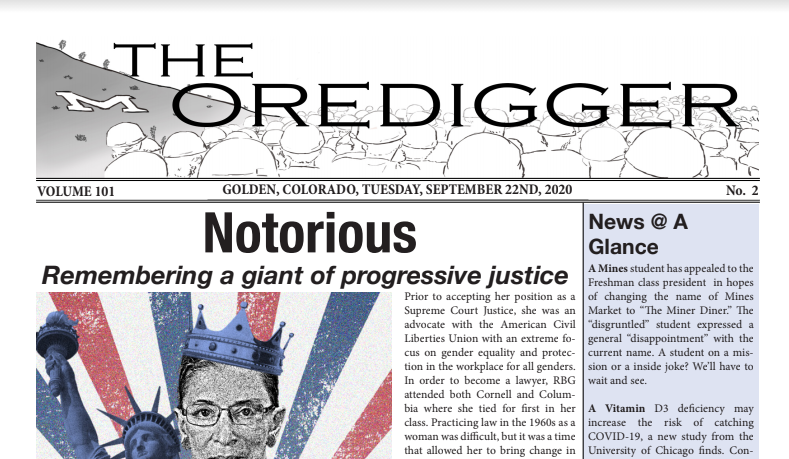Sometimes, it can be easy to ignore the daily struggles faced by inner city children. They have to deal with drugs, gangs, broken homes, and the hopelessness that can result from it. Many groups try to help inner city children, but one group has a unique approach. The Big City Mountaineers (BCM) take inner city children on hikes through the mountains. Their philosophy is based on the hero’s journey created by Joseph Campbell, as they take students on a life-changing journey to self-discovery and greater confidence in themselves. More often than not, this approach works very well. The following is a narrative of the author’s experience on a recent BCM trip.
Upon arrival, the first thing the organizers did was divide us up into groups based on our hometowns. People north of Golden were in one group, people south of Golden were in another group, and so on. Twelve people not counting myself were involved. Elizabeth Williams, the Rocky Mountain Program Director, said the purpose of the activity “was to learn more about our backgrounds and gain an idea of how diverse we are.” We each talked about our backgrounds to help gain a better understanding of each other and where we came from.
After the activity, we moved to a conference room to listen to a presentation on the goals of the organization. BCM’s goal is “to instill critical life skills in underserved urban youth through transformative wilderness mentoring expeditions” as said in their charter. They serve under-resourced and racially diverse students in partnerships with community agencies, professional instructors, and adult volunteer mentors. BCM does this through “mentoring expeditions” that last for between one day to one week depending on the age of the kids. The intent is to instill critical life skills, integrity, conflict resolution skills, and positive self-esteem. “Going on these experiences, they will have more confidence to succeed,” said Sherry Manning, one of the volunteers. They even presented a video narrated by Taylor, a student who had experienced the program, in which he espoused how his life got better as a result of the program. “They taught me about responsibility,” said Taylor.
BCM uses surveys based on the Search Institute’s 40 Developmental Assets Profile to measure the program’s effectiveness, and the youth involved in the program consistently show long-term growth in positive values, social competencies, and positive identity. In addition, BCM youth are more likely to stay in school and have the confidence to avoid drugs, violence, and delinquency. Williams and Manning insisted on volunteers to join and that they want a diverse array of volunteers. Sometimes it takes a certain volunteer to connect with a certain student. Manning gave one example of a youth who did not make friends easily. “The student couldn’t connect with any of the volunteers, but she was able to connect with one volunteer,” said Sherry. “It can take only one volunteer to connect with a student.” “We consider our volunteers ‘gatekeepers’ of knowledge,” Williams added. The slideshow then focused on the various mountain climbs BCM does. Some climbs are professionally guided and are fundraisers for BCM to enable youth to go on BCM’s expeditions. More details can be found at http://www.summitforsomeone.org.
The second and final activity was a trust-building exercise. The object was to prevent a rolled-up sock from striking your posterior. As a result, everyone had their backs to each other to prevent the socks from having a clear target. It was a subtle way for disparate people, even people with shyness and/or trust issues, to learn to trust and rely on each other. “This is so we can get people to open up, even shy individuals,” said Williams. “That way, we can move them from low-trust to high-trust activities.”
There are single-day programs for children and week-long expeditions for teenagers. BCM partners itself with after-school programs, residential foster care agencies, educational institutions, and summer youth programs to identify children who could benefit from the BCM program. The expedition team consists of an instructor, youth agency leaders, volunteer mentors, a peer leader, and the youth. The expeditions consist of teambuilding, hiking, BCM rituals, camping, lessons in the backcountry, and a peak climb. “This is often their first time in a tent,” Elizabeth commented. The entire expedition follows the hero’s journey. BCM structures the expeditions like the stages of the hero’s journey so the participants are changed by their journey for the better. They gain skills such as decision-making, responsibility, integrity, self-esteem, communication, resilience, honesty, caring, and conflict-resolution. The overnight camps are for kids 8-12 years old and teach many of the skills mentioned previously.
Towards the end, Manning told a success story of one teenager who was very small-statured. She claimed she was pregnant and that she needed to marry someone and join a gang in order to stay safe. While on her journey, she opened up about herself and realized that she was stronger than she thought. She decided she did not need to get married or join a gang and realized that she could take care of herself.
The Big City Mountaineers have a unique program for uplifting troubled youth. They send youth on expeditions into the mountains to learn vital life skills to help them succeed in life. The presentation was to recruit people interested in joining and teach them about the program as a whole. The success rate for this program is very high and many teenagers leave the program and are successful later in life. This program is always looking for volunteers, and more information can be obtained at http://www.bigcitymountaineers.org.




'Big City Mountaineers is recruiting volunteers' has no comments
Be the first to comment this post!